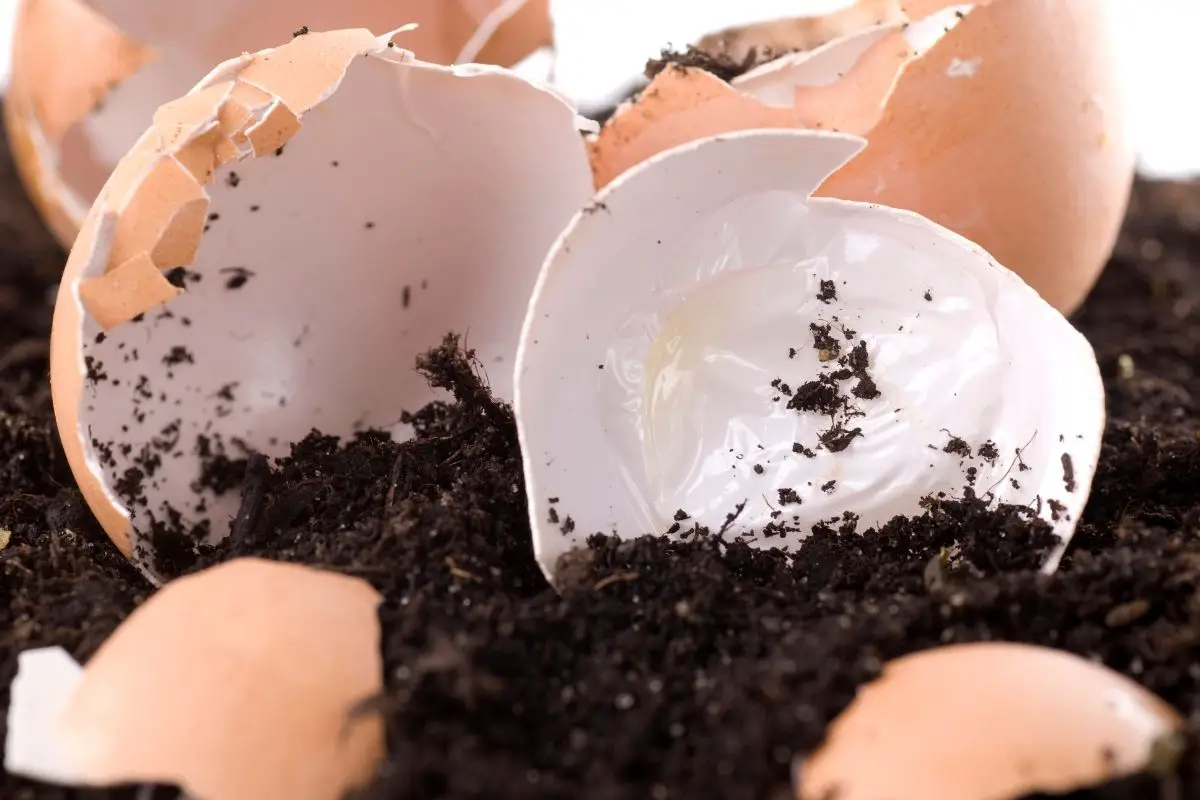Eggshells for Compost | All Your Questions Answered
Eggshells for compost? Yes, you can!
Turns out eggs aren’t just good for us, they can be great for your garden too! If you’re like me and absolutely love eggs, but hate the abundance of shells you end up with afterwards, chucking them in your compost heap is the perfect solution.
But how exactly do you compost eggshells? Unfortunately, it’s not quite as simple as just throwing them in the compost pile in large chunks.
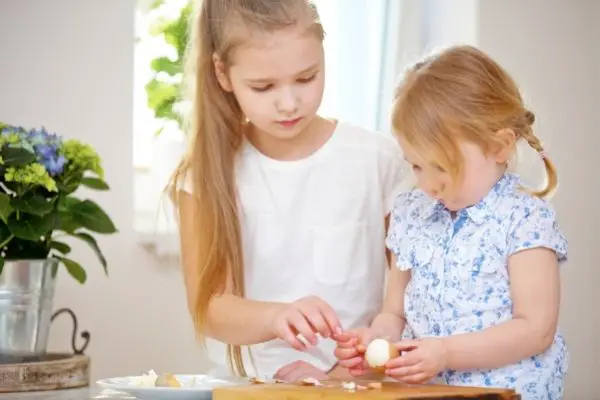
There is a process to composting eggshells which at first may seem like a complete waste of time, but stick with it! Eggshells have tons of benefits that can really bump up the quality of your garden soil, so your hard work will be worth it!
Read on to find out more about using eggshells in the garden!
Can You Put Eggshells In Your Compost?
Yes! These little breakfast (and lunch. and dinner) items are perfect for adding to your outdoor compost pile. And while we’re on the subject of breakfast, don’t forget you can add the leftover coffee grounds from your coffee grinder to your Bokashi compost or worm bin!
It turns out that eggshells contain many nutrients that are great for plants, including calcium carbonate, magnesium, and potassium. They’re also packing 5% organic material and 21ppm sodium!
Will Eggshells Improve Your Compost?
Yes! If you have acidic soil, adding a source of calcium such as eggshells would be a huge help, depending on what you’re growing. For this reason, it’s a good idea to do a soil test.
If you’re growing tomatoes or other crops, the added calcium from the eggshells will be a big help when it’s time to plant. In fact, a ground eggshell meal is a fantastic organic fertilizer!
Calcium from eggshells also helps with the building of cell walls in plants as well as aiding them in growing faster! They’re awesome for worm bins too as they provide the grit needed for digestion when they’re ground up into a fine powder.
Fun fact: Another surprising ingredient you can add to your compost is crab shells!
How To Compost Eggshells
Unfortunately, like other food scraps, you can’t just chuck the eggshells into the pile in big chunks. This is because they’re made from minerals so they take longer to decompose than other types of food waste.
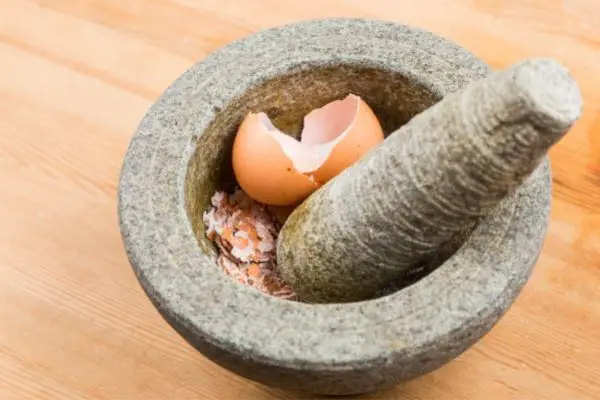
It can take years for eggshells to break down so it’s super important to compost them properly. The best way of speeding up the process is to grind them up into eggshell powder before adding them to your compost bin.
A coffee grinder is a perfect tool for creating powdered eggshells, just don’t use your best Breville to do the job! Maybe pick up a cheaper grinder especially for your composting kit!
You can add eggshells to a blender along with other kitchen scraps too!
Other Uses for Crushed Eggshells
Fight Off Pests
Did you know that adding eggshells to the bases of plants can be a great deterrent against pests? Popping a pile of crushed shells around plants can repel some pests such as cutworms.
These annoying little caterpillars like to cut the heads of little seedlings, and they typically aim for the delicate stems. Use your eggshells as collars around the base to deter these pesky little creatures!
Add To Soil
Because eggshells are rich in calcium, they are fantastic for reducing soil acidity levels whilst also providing important nutrients for your plants. In fact, eggshells contain so much calcium that they can be used as agricultural lime.
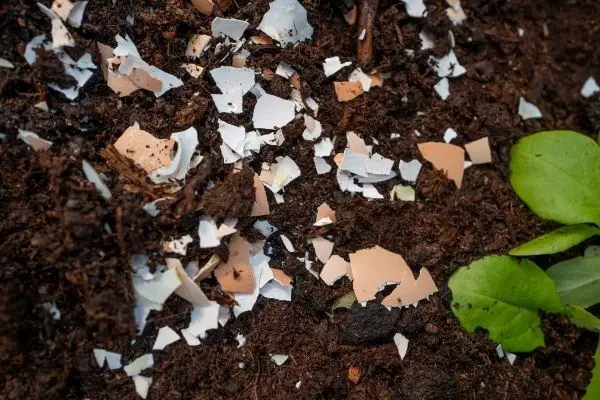
As well as that, finely powdered eggshells are great for mixing with other organic matter to help new plants thrive, especially tomatoes, those little guys love calcium!
Frequently Asked Questions
Are eggshells good for compost?
Yes, eggshells are great for adding to compost piles! They add calcium, potassium, and other important nutrients which your garden soil will love! They will reduce soil ph levels and aid in building strong cell walls in your plants.
Another reason eggshells are great for composting is that they provide much better conditions for the worms that will gather in your finished compost bin. Worms need grit to digest food, and powdered eggshells are a great source.
How long does it take for eggshells to compost?
This depends on how you prepare them. If you just lobbed them into your pile, they’d probably still be there after months or even years. I did this the first time I made my compost bin, so you can learn from my mistake!
Eggshells that have been crushed to a powder will compost much faster. Even better, if you find yourself overrun with eggshells, you can crush them all up and store them in airtight containers, where they can pretty much last forever.
This means you’ll have a constant supply of crushed eggshells ready to go for future composting!
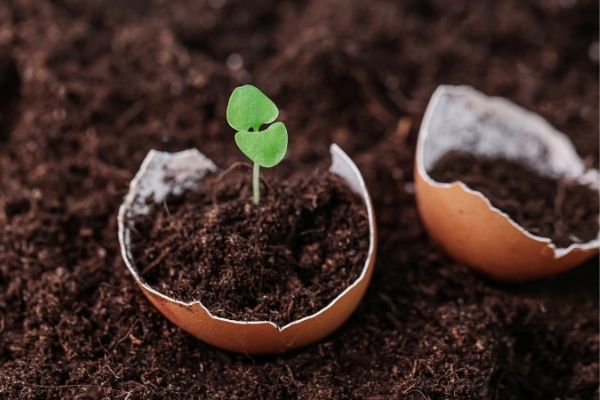
Which plants like eggshells?
Tomatoes, eggplants, and peppers are just a few of the plants that will love eggshell fertilizer. If they’re suffering from calcium deficiency, eggshells will prevent blossom-end rot.
Cauliflower, Swiss chard, spinach, and broccoli also benefit from calcium and would definitely be grateful for the extra source from the eggshells.
Can I put eggshells straight on my compost pile?
Yes, you can, and doing so will add a valuable source of calcium to your compost. This essential nutrient will help your plants grow stronger and faster.
You may want to wash the shells out as well to avoid attracting animals and ending up with your precious compost everywhere! It will also reduce the risk of salmonella which raw eggs do contain.
What can finely ground eggshells be used for in the garden?
From tomato planting to adding to compost bins for the worms, there are numerous uses for these seemingly useless kitchen scraps. Ground eggshells are also great if your soil tests as calcium deficient.
So if you eat eggs every morning for breakfast, don’t worry, there’s a use for the abundance of shells that are left behind!

